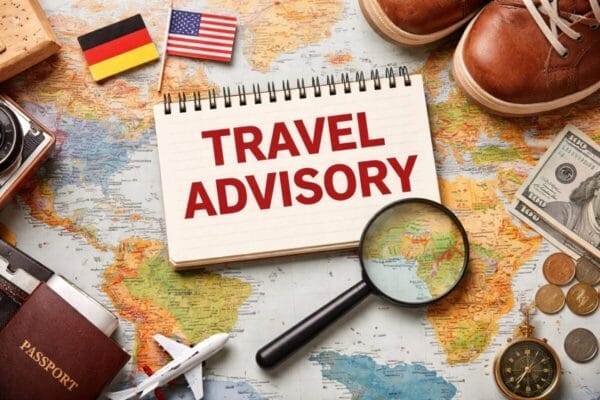As 2026 nears, Latin America’s vibrant tourism appeal is clouded by spreading travel advisories, health outbreaks, and natural hazards across key destinations. From Brazil to Venezuela, travelers must stay current on risks like yellow fever, dengue fever, political unrest, and environmental threats to safeguard their journeys.
Brazil: Rising Warnings and Disease Outbreaks
Crime & Safety: The U.S. State Department currently assigns Brazil a Level 2: Exercise Increased Caution, warning of violent crime and kidnapping. Travelers are advised to avoid areas within 100 miles of Brazil’s borders (except select national parks) and steer clear of informal settlements and some Brasília suburbs after dark.
Disease Outbreaks: Brazil is confronting a serious yellow fever outbreak, with over 100 confirmed cases and 40+ deaths in 2025—spanning São Paulo, Minas Gerais, Pará, and Tocantins.Simultaneously, the country is experiencing one of the worst dengue fever surges ever, with projections hitting 4.2 million cases in 2024 alone.
Oropouche Virus Alert: An outbreak of this mosquito-transmitted virus in Espírito Santo adds another layer of concern.
Other Nations: Health Alerts and Safety Signals
- Peru & Colombia: Both countries are grappling with yellow fever outbreaks. Colombia recently declared an emergency due to rising case numbers. Vaccination requirements are increasing for park access and travel.
- Bolivia: Declared a Level 4: Avoid All Travel advisory amid severe flooding. Yellow fever cases are also confirmed.
- Ecuador: Now requires proof of yellow fever vaccination from travelers arriving from Brazil, Peru, Colombia, or Bolivia.
- Mexico: Travelers face risks from dengue and measles, along with violent crime linked to cartel activity in certain regions.
- Costa Rica, Dominican Republic, Belize: Ongoing dengue prevalence, with Belize also experiencing a recent measles outbreak.
Summary Table of Risks
| Country | Advisory Level | Key Health Risks | Main Safety Concerns |
|---|---|---|---|
| Brazil | Level 2 | Yellow fever, dengue, Oropouche | Crime, kidnapping, violent unrest |
| Bolivia | Level 4 | Yellow fever | Flooding, infrastructure damage |
| Peru / Colombia | Varies (Level 1–2) | Yellow fever | Crime in remote zones; vaccination required |
| Ecuador | Level 1 | Yellow fever entry restrictions | Urban crime, civil unrest |
| Mexico | Level 2 | Dengue, measles | Cartel-affected zones |
| Dominican Republic | Level 2 | Dengue, chikungunya, Zika | Violent crime in tourist areas |
| Costa Rica / Belize | Level 1 | Dengue; measles in Belize | Petty crime in tourist zones |
| Venezuela | Level 4 | (Not specified) | Political instability, civil unrest |
Why Brazil May Suffer Tourist Fallout
With soaring health risks—from yellow fever to dengue—and safety warnings for theft and violence, Brazil may see declining inbound tourism in favor of safer destinations. Shared borders and interconnected travel routes mean spillover effects for Peru, Mexico, Colombia, Costa Rica, and others, particularly as advisories shape traveler behavior.
For instance:
- Travelers may bypass Bolivia due to flooding and public safety threats.
- Peru and Colombia face vaccination hurdles and heightened caution for their rural or national parks.
- Mexico’s dengue surge and regional crime concerns could deter shortening stays or cross-border tours.
Staying Safe: Travel Tips for 2026
- Vaccinations First: Yellow fever shots remain essential, especially for jungle/forest trips or border crossings.
- Avoid High-Risk Areas: Whether disease hotspots or crime-prone neighborhoods, staying informed of local advisories is vital.
- Monitor Health Sources: CDC and PAHO updates offer real-time alerts—check before finalizing travel plans.
- Insurance & Precautions: Get coverage for medical, evacuation, and natural disasters.
- Flexible Itinerary: Consider alternatives like Argentina or Chile, which currently report fewer health or political concerns.
2026 may bring Latin America new tourism challenges—yet preparedness and awareness remain powerful tools for safe and fulfilling exploration.
For more travel news like this, keep reading Global Travel Wire


















